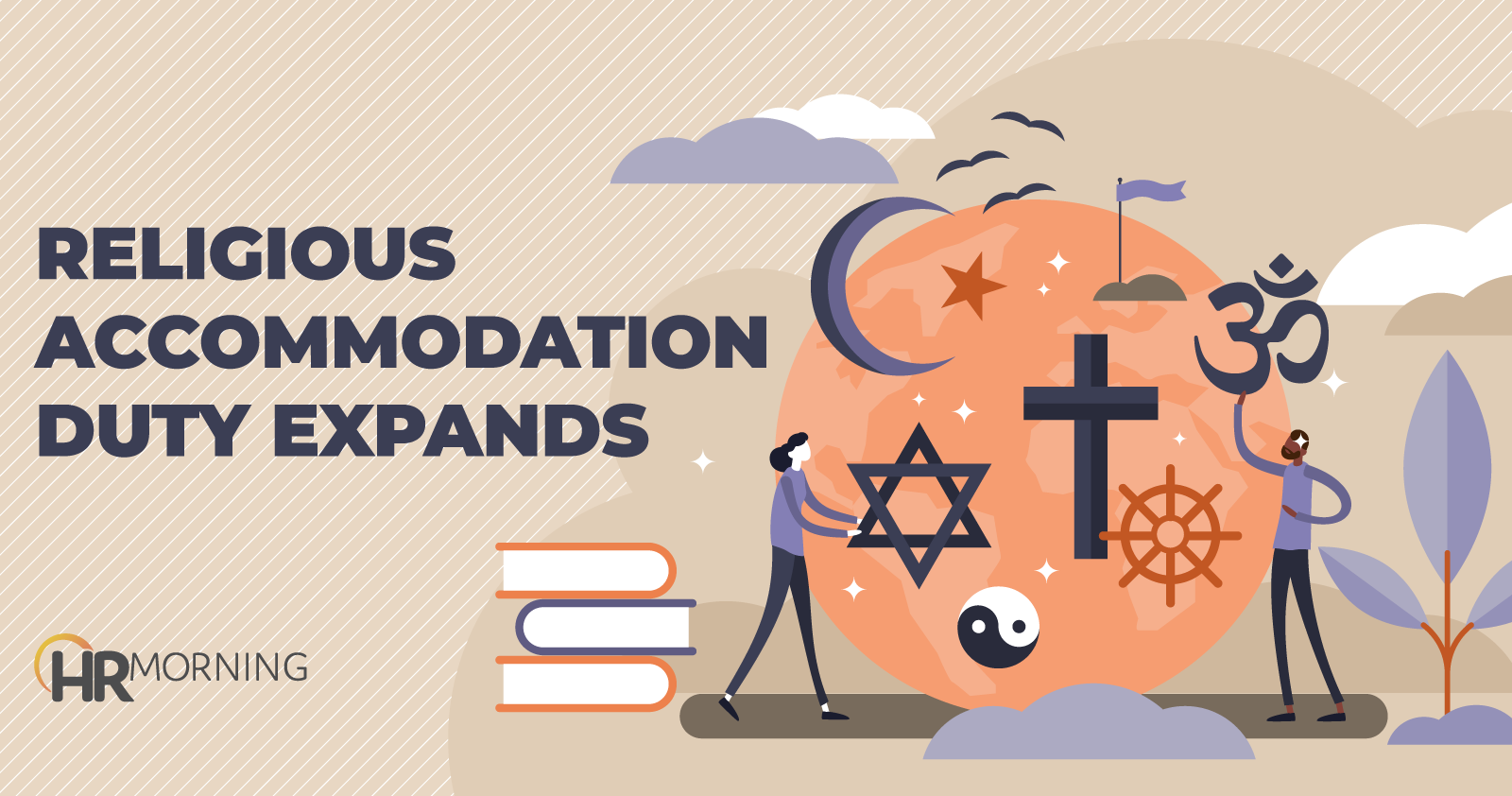As we predicted, the U.S. Supreme Court has expanded the duty of employers to provide religious accommodation to employees under Title VII. The high Court did so via a unanimous decision that essentially redefines the concept of “undue hardship” in cases involving religious accommodation.
Beginning immediately, employers must be prepared to do more to accommodate requests for religious accommodation.
Background of the case
Gerald Groff, an Evangelical Christian and Sunday Sabbath observer, began working for the U.S. Postal Service in 2012.
Groff worked as a Rural Carrier Associate, a position that generally did not require Sunday work. That changed when the postal service entered into an agreement with Amazon to begin making Sunday deliveries. When that happened, the postal service told Groff he would need to work on Sundays.
Groff got a temporary reprieve by transferring to a station that did not make Sunday deliveries. But Amazon deliveries soon began from there as well, and Groff found himself in the same predicament.
The postal service tried to accommodate his desire to avoid Sunday work: It had other staffers make Sunday deliveries during peak season, and during other times it had other carriers do the Sunday work.
It was not easy to make things work. The postmaster had to cover some shifts and said it was difficult to find coverage and increased his workload. The postal service also said Groff’s refusal created morale problems and resentment toward management among the carriers who were forced to cover for his repeated absences.
Groff was progressively disciplined for his continued refusals, and in January of 2019 he resigned.
When he sued for disparate treatment and refusal to accommodate under Title VII, a lower court ruled against him on the basis that granting the requested accommodation would produce an undue hardship for the postal service. After a federal appeals court agreed, the case reached the U.S. Supreme Court for further review. The Court heard oral arguments in April and issued its unanimous decision on June 29.
What is ‘undue hardship’?
Under Title VII, covered employers must reasonably accommodate their employees’ sincerely held religious beliefs unless doing so would result in “undue hardship.”
The crux of this case: What exactly does “undue hardship” mean in Title VII cases involving religious accommodation?
Then and now
Before this case was decided, courts interpreted the term to mean anything more than a “de minimis” cost on employers. In other words, if the burden of providing a religious accommodation was anything beyond de minimis, the accommodation was not required.
That standard derived from a 1977 Supreme Court ruling that included this fateful line: “To require [the employer] to bear more than a de minimis cost in order to give [an employee a day off to worship] is an undue hardship.”
Lower courts subsequently seized on this isolated language to adopt a de minimis undue hardship standard for religious accommodation.
It was not a crystal-clear standard by any means — but it was crystal clear that it was a standard that favored employers by setting the accommodation bar relatively low. For example, by contrast the Americans with Disabilities Act’s definition of the term requires the provision of accommodation unless doing so would result in “significant difficulty or expense.”
In deciding whether a religious accommodation imposed an undue hardship under Title VII, the EEOC explained that relevant factors included “the identifiable cost in relation to the size and operating costs of the employer, and the number of individuals who will in fact need a particular accommodation.”
In the Groff case, the Supreme Court said in essence that lower courts have been misreading the 1977 case all this time by placing too much reliance on that single sentence from it.
“[I]t is doubtful that [just that one sentence] was meant to take on that large role,” the Court explained.
Instead, the Court said, the earlier ruling suggested a more stringent standard for employers, noting that it spoke in terms of “substantial” costs or expenditures. That ruling’s reference to de minimis “was undercut by conflicting language,” it explained.
In reaching this conclusion, the high Court relied in part on dictionary definitions of the words “undue” and “hardship.”
The new standard
So just what does “undue hardship” mean now?
“We hold that showing ‘more than a de minimis cost,’ as that phrase is used in common parlance, does not suffice to establish ‘undue hardship’ under Title VII,” the Court decided.
Instead, undue hardship exists when granting an accommodation “would result in substantial increased costs in relation to the conduct of [the employer’s] particular business.”
The decision instructs lower courts to apply the test in a “commonsense manner” and in a way “that takes into account all relevant factors in the case at hand, including the particular accommodations at issue and their practical impact in light of the nature, ‘size and operating cost of [an] employer.’”
The high Court sent the case back to a lower court for further development in light of the newly clarified applicable standard.
What it means
While the ruling does not establish a bright-line test that employers can apply when determining whether a requested religious accommodation would impose an undue hardship under Title VII, it puts to bed the idea that all they need to do to avoid providing an accommodation is to show anything more than a de minimis burden.
The key takeaway here is that employers must now do more to accommodate religious accommodation requests.
Precisely how much more remains to be seen. And although the decision explicitly rejected the suggestion that the question be answered by reference to an existing body of ADA caselaw that addresses it under that law, ADA caselaw is nonetheless instructive to employers trying to determine precisely where the new boundary lies.
The decision is Groff v. DeJoy, No. 22-174 (U.S. 6/29/23).



